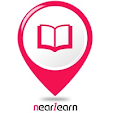A world of opportunities awaits you when you join the
bandwagon of higher education candidates and wish for prosperity in your field
of study. Graduating from a university and earning a certificate in digital
format powered by interrupted technology like blockchain. The way education is
provided and managed is an ever-evolving process. With the bursting of
blockchain, the education sector wants to make the best use of this technology
talent to improve its management.
Blockchain technology is in the vein of the education sector where many educational institutions are getting ready to implement blockchain-based tools. There are also many researches that will pave the way to identify the strengths and weaknesses of the implementation of blockchain technology in education. Let us assess the issues encountered in the field of education, how to solve them using blockchain technology and examples of leveraging blockchain in this area.
Exploring blockchain
“The network is strong in its unstructured simplicity. All nodes work together with little coordination ”- Satoshi Nakamoto
Satoshi Nakamoto, in his original bitcoin white paper,
defined an electronic coin - bitcoin as "a series of digital
signatures", called block chains.
Source: PwC
Despite its clarity, a block chain is just another type of
database for recording transactions that are copied to every other computer in
a participating network. Therefore, it is also known as 'Distributed
Distributor'. In a block chain, data is stored in fixed structures called cha
blocks.
Benefits of
blockchain in education
Digitization is at the heart of the blockchain and life is made easier for whoever is trying to get the most out of this technological miracle. Blockchain can be very beneficial in education sector.
Blockchain can
replace paper
One of the most popular features of blockchain technology in this area is that it can make the dematerialization of documents a possibility. It can also help avoid the risk of losing paper documents or being false.
Blockchain is cost
effective
The blockchain helps transfer the applicant's right to control and store the applicant's personal data. Institutions can reliably and responsibly store documents and provide access to applicants at the request of employers and officials. Thus, blockchain will help save millions of dollars as well as many hours of lab or. Therefore, it removes the burden on educational institutions.
Accounting using
blockchain technology
Financial accounting is an important component in the
administrative workflow of schools, universities, and other educational
institutions. Blockchain technology can enhance the machine for calculating
scholarships for students and salaries for teachers and can offer a transparent
and fair mechanism for funding grants and projects
Applying blockchain
technology in education
Do you have any examples of blockchain functions in
education? Blockchain is indeed a seamless technology. It has purposes in the
world of learning at the individual, institutional, group, national and global
levels. It is relevant in all contexts such as schools, colleges, universities,
MOOCs (large-scale open online courses), CPD (continuous professional
development), corporates, apprenticeships and knowledge bases.
Blockchain is truly a seamless technology!
Data transparency
To deal with the growing need for data transparency and collaboration, Columbia University and IBM worked to create blockchain and data transparency centres. The canter will drive cutting-edge research into the future of data sharing, including blockchain and data encryption. Thus, cross-disciplinary teams have to be brought together to deal with data transparency and data ownership.
Educational platform
Zebi Data, a start-up working on blockchain technologies, has developed a special blockchain platform for the education sector. Any educational institution that wants to connect, this platform will act as a node with complete control over the data that they own They will obtain requests from stakeholders to affirm a unique certificates issued via them.. They will list the request and respond by checking the database.
With the underlying technology pioneered by the data and analytics marketplace Experi at the Harvard Innovation Lab, the Cayman Islands-based Expex launched an initial coin offering (ICO) to build a decentralized education platform. This platform supports upskilling, evaluation, consulting, and peer-to-peer financial support.
The On-Demand Education Marketplace (ODEM) is another platform intended to offer learners and teachers a flexible educational canter to directly connect, plan and confirm an individual's courses. Blockchain allows ODEM to put off establishments that stand between college students and teachers.
Tutor Ninja is the future vision of global learning and
tuition in the NTOK ecosystem, which uses blockchain technology at its core. It
is a development of a private tutoring operator called Tutor Ninja, a
three-tiered blockchain infrastructure to continue education throughout life.
The NTOK token platform thought constitutes on line schools, which are an
on-line aggregator of non-public tutor offerings in addition to the offerings
of tutors and NTOK ecosystem companions. Standard private tutoring seconds
selected tutor hours at a fixed price.










0 Comments